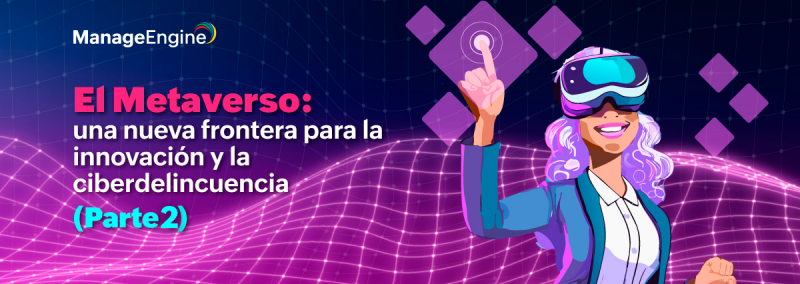Five worthy reads is a regular column on five noteworthy items we’ve discovered while researching trending and timeless topics. This week we will explore the concept of the metaverse and what it holds for the future of technology and user experience.

Illustration by Dorathe Victor
When Facebook changed its name to Meta in September 2021, a new buzzword took over the tech world: the metaverse. The search for the origin of the concept of a metaverse would lead one to a 1992 novel written by sci-fi writer Neal Stephenson. He used the term “metaverse” to describe a fictional virtual world. Thirty years later, top tech companies are making this a reality.
So what is the metaverse, and why is there all the hype?
While lacking a formal definition, the metaverse is conceptualized as a virtual world providing immersive and augmented experiences using technologies such as AR, VR, and IoT.
In the simplest of terms, the metaverse allows users to have a digital presence in a virtual world, interact with other users, and explore augmented experiences—to have a digital life. The metaverse also facilitates ownership of digital assets with the help of blockchain technology; users can create, buy, or sell these digital assets, which could range from virtual apparel to digital land.
We have also seen virtual concerts conducted in the recent past, with artists and the audience joining in as their avatars. These events, just like their physical counterparts, provide merchandising and other revenue-generating opportunities for businesses. With events such as meetups, gaming competitions, and weddings being conducted in the metaverse, the future of the metaverse looks bright, with endless possibilities of augmented experiences.
Bloomberg expects the metaverse revenue opportunity to be around $800 billion in 2024. Even though early adopters of the metaverse look to be in gaming, entertainment, and social media, businesses in other industries are vying to secure their share of the pie in the metaverse.
Apple acquired VR startup NextVR in 2020. Microsoft recently bought gaming giant Activision Blizzard for a whopping $68.7 billion. Chinese tech giants Tencent and Alibaba have registered metaverse-related trademarks. In an attempt to develop a virtual world concept, Epic Games raised $1 billion.
Here are five interesting dimensions of the metaverse and how it may impact the future of humankind.
Even in its nascent stage, the metaverse is set to transform the user experience like never before. We are about to witness a new set of technologies and financial opportunities.
As more people explore commerce in the metaverse, big brands need to venture into the virtual world with digital products. Fashion companies like Gucci and Ralph Lauren are venturing into the digital space to meet consumers’ digital needs. With more digital assets in circulation, there exists a need to prevent forgery; luckily, verifying an asset’s authenticity is something non-fungible tokens can facilitate.
While it is clear that the metaverse comes with a huge infrastructural requirement, one of the major concerns in its operation is data security and privacy. With Facebook, a company known for its share of issues with privacy, popularizing the metaverse, it is quite natural for consumers to be concerned about privacy in the metaverse. Companies are in pursuit of security capabilities for the metaverse, as evidenced by Microsoft’s acquisition of ReFirm Labs and CyberX, to build on IoT security.
With sustainability being a major concern today, organizations venturing into the metaverse hold their share of responsibility in addressing the metaverse’s contribution to the climate crisis. Although some believe that the metaverse will help reduce the burden on the environment by lowering the consumption of physical goods, there need to be focused efforts to minimize the energy consumption required to sustain the metaverse.
As we get ready for a virtual world with endless possibilities, there are questions about the social interactions in such a world. Does the fact that it is a simulated environment take away the humaneness of the metaverse’s users? How will the experience affect the real-life behavior of metaverse users? The article discusses the findings from a plethora of research on the effects a simulated environment can have on real-life choices, and how we can derive positive experiences from simulations like the metaverse.
The digital transformation triggered by the pandemic has challenged traditional methods of running a business. Operations have moved from physical to hybrid and to even completely remote. Accenture, a consulting firm, recently purchased 60,000 VR headsets for training its employees in an effort to “[replicate] the intimacy of an in-person work environment, while preserving the safety and flexibility of working from home.” Along with providing revenue opportunities, the metaverse could also help enterprises transform traditional operations and, as in this case, improve employee experiences.
It is evident that the race to conquer the metaverse will favor innovative companies with access to advanced computing power, tech infrastructure, communication technology, and metaverse-related patents. The next decade will witness a multitude of mergers and acquisitions made to build businesses’ metaverse capabilities as it will become a necessity for brands to secure their place in the metaverse.

This is an excellent collection of good informative blog about the metaverse.